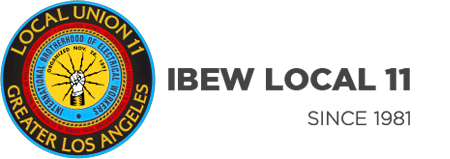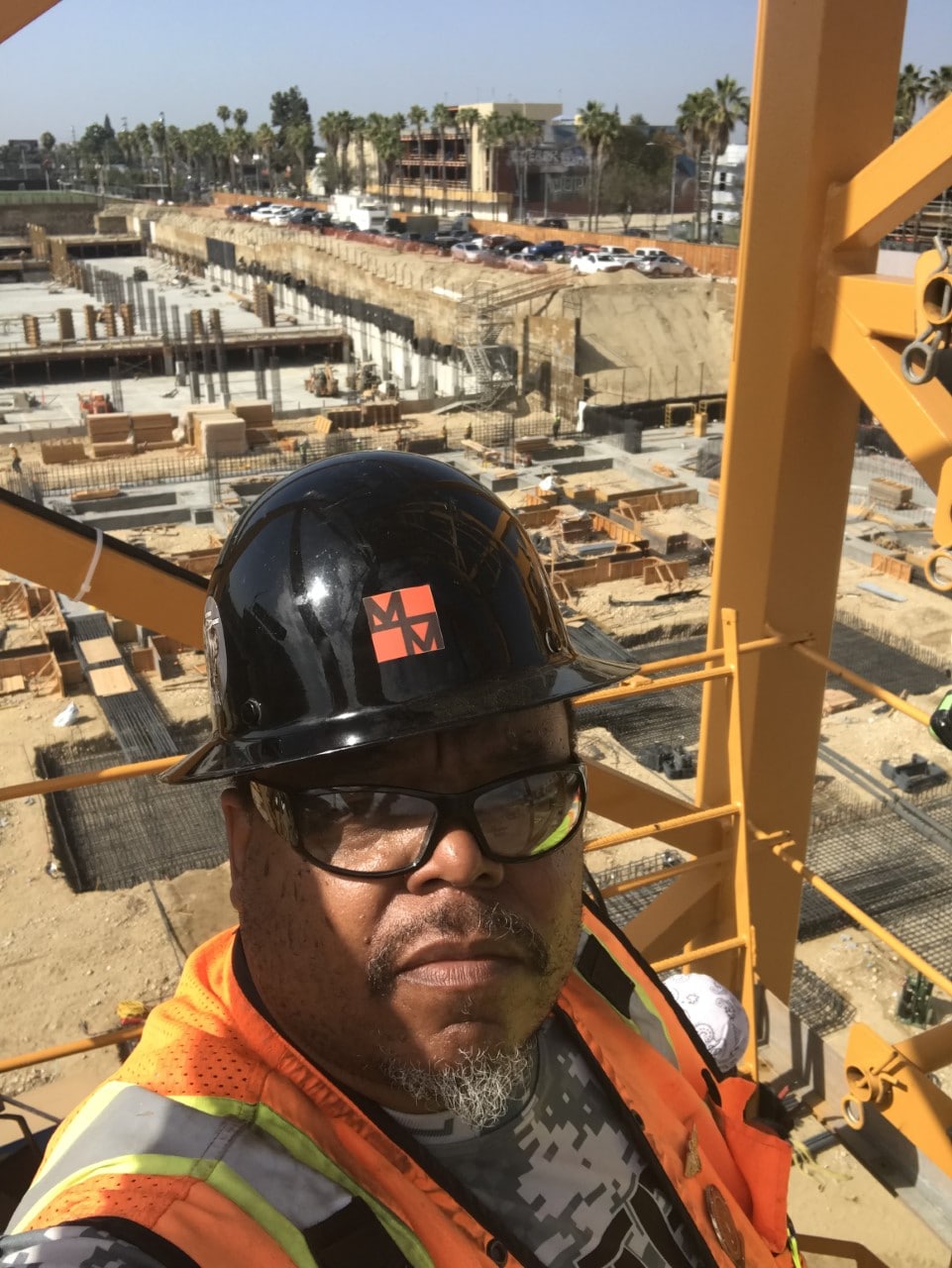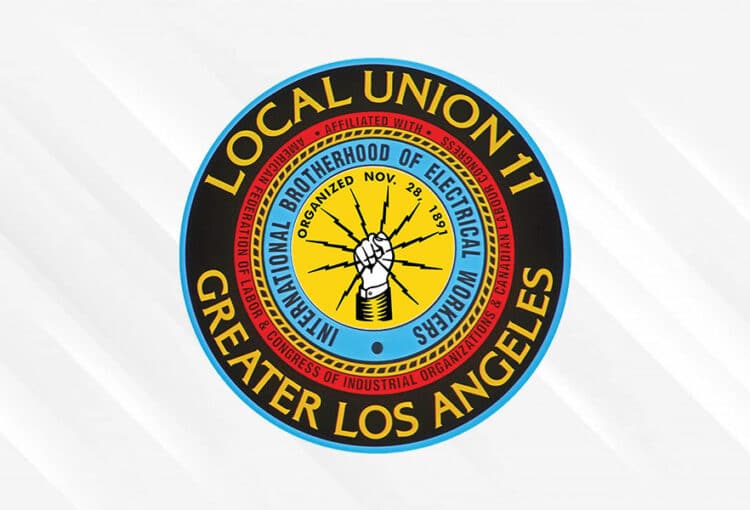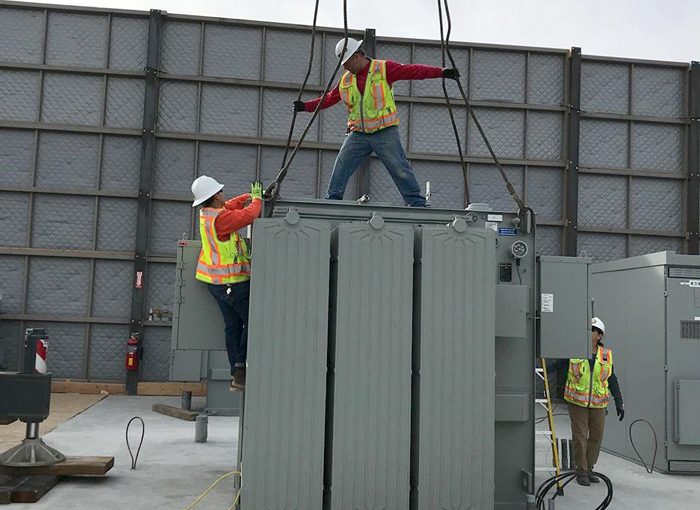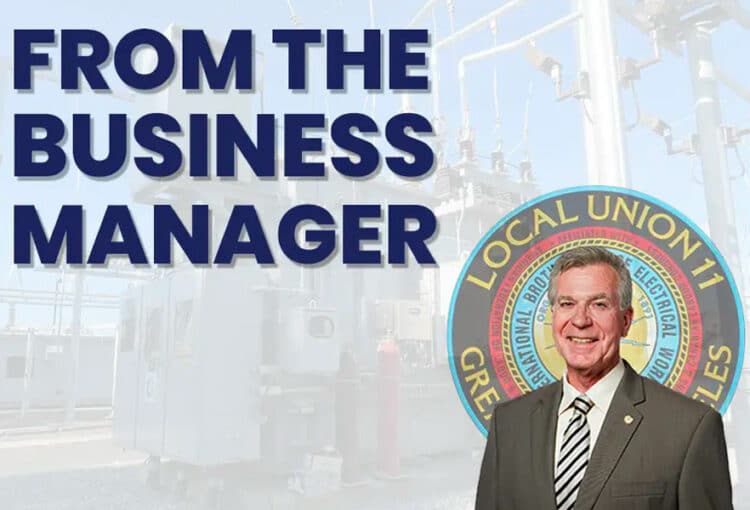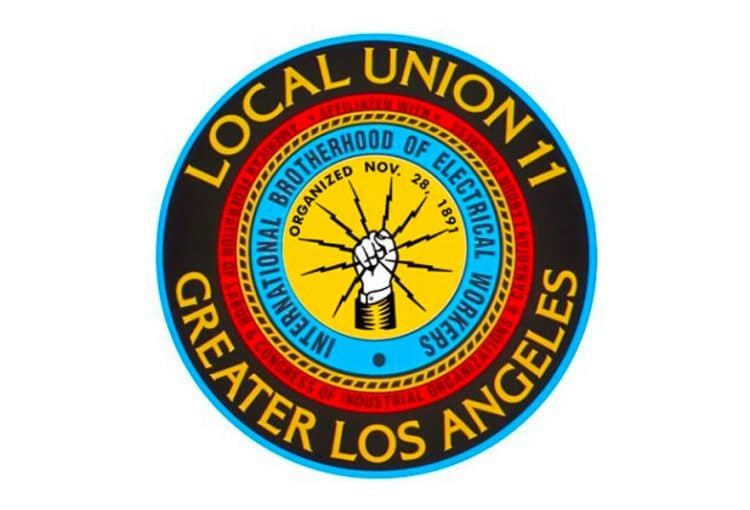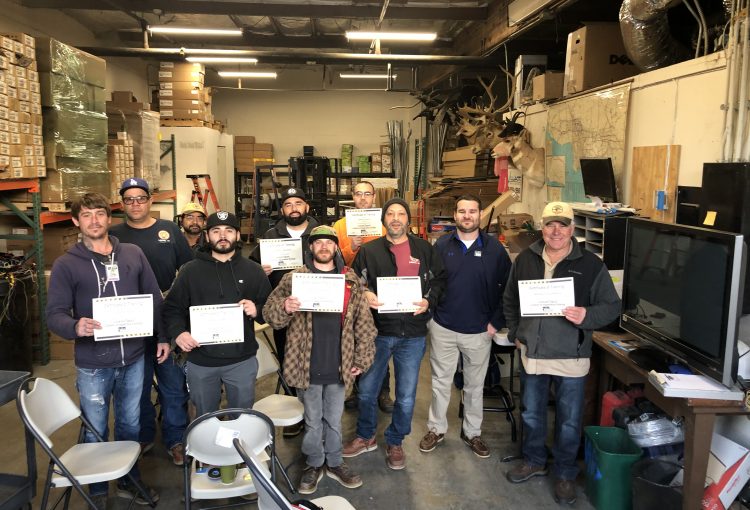Big John Gives Back
By Alex Weber
John Harriel is a busy guy, and a recognizable one. “Big John’s” name rings out for good reason — and not just at Local 11, where he’s a journeyman wireman and a 25-year member.
He’s superintendent and diversity manager for electrical contractor Morrow Meadows. He’s a facilitator at South Los Angeles post-prison re-entry program 2nd Call. He’s founder of his own nonprofit, Big John Kares, which promotes educational equality for inner-city kids. He’s testified before Congress.
Most recently, he received the 2020 Construction Friend Award from AGC of California for his notable efforts in mentoring and giving back to the community.
There’s no question Harriel is a pillar of the labor movement. By his own estimation, he has helped thousands of formerly incarcerated people and at-risk youth of all racial and ethnic backgrounds to find their way, many into the trades. But 30 years ago, when he was in his early 20s, Harriel was deep in the game of slinging dope. Back then, the east-side South Central neighborhood where he was born and raised (and where still lives today) had transformed into one of the largest illegal drug markets in the country.
“In my community, everybody was doing what I was doing,” Harriel said. “At least, it seemed like it was everybody.”
It was the early 1990s: the peak of the crack epidemic. Tempted by the allure of fast riches, countless young Angelenos drifted into trafficking and selling cocaine and crack. Harriel’s unstable home life and lack of job skills meant he didn’t have much to lose, so he spent his days on the corners and in the alleys moving product.
Despite whatever money he made, it was not the happiest time of Harriel’s life. “I wanted to kill myself,” he said. “I just didn’t want to do it.”
In 1992, luck caught up with him when, on a trip to Chicago, he was busted for cocaine possession. Harriel was convicted and began serving out a five-year sentence at the Danville Correctional Center in Illinois.
Prison, it turns out, would provide the catalyst for positive change that Harriel had needed in his life, and all thanks to his work assignment: Helping Everett Tims, the prison’s overworked electrician and a member of Danville IBEW Local 538.
Tims taught Harriel the ropes of electrical work, as well as invaluable lessons on process, procedure, and how to conduct oneself in a job setting. He also introduced Harriel to the IBEW. Tims had expectations for his apprentice. The knowledge that he must meet or exceed those expectations was transformative for Harriel.
“What [Tims] did is make me uncomfortable,” Harriel said. “I had to show up at a certain time every day. I had to tuck my shirt in. I couldn’t cop an attitude. Otherwise, I’d get sent home.”
For the first time, Harriel said, he learned what it meant to be accountable. Harriel also gained marketable job skills and, with them, a sense of confidence. Well before the day of his release in 1997, Harriel was making plans to meet with the recruiters at IBEW 11 back home in L.A. Then-apprenticeship coordinator Larry Caldwell helped Harriel transition from prison to membership and work.
“He treated me like a human being,” Harriel said of Caldwell. “I’m forever indebted to him for that.”
Needless to say, Harriel hasn’t looked back, and he continues to achieve in his professional life and with his efforts in the community. Today, he’s all about recruiting people who went through struggles similar to his own. He helps recently released prisoners and underserved young people understand paperwork, coaches them on interview techniques and helps guide them toward good jobs and into the labor movement.
It’s clear that his passion is brighter than ever.
“I know I have a duty to go back into my community and help get people into the trades,” Harriel said. “I just think, ‘How many others like me can I help get to where I am, or beyond?’”
